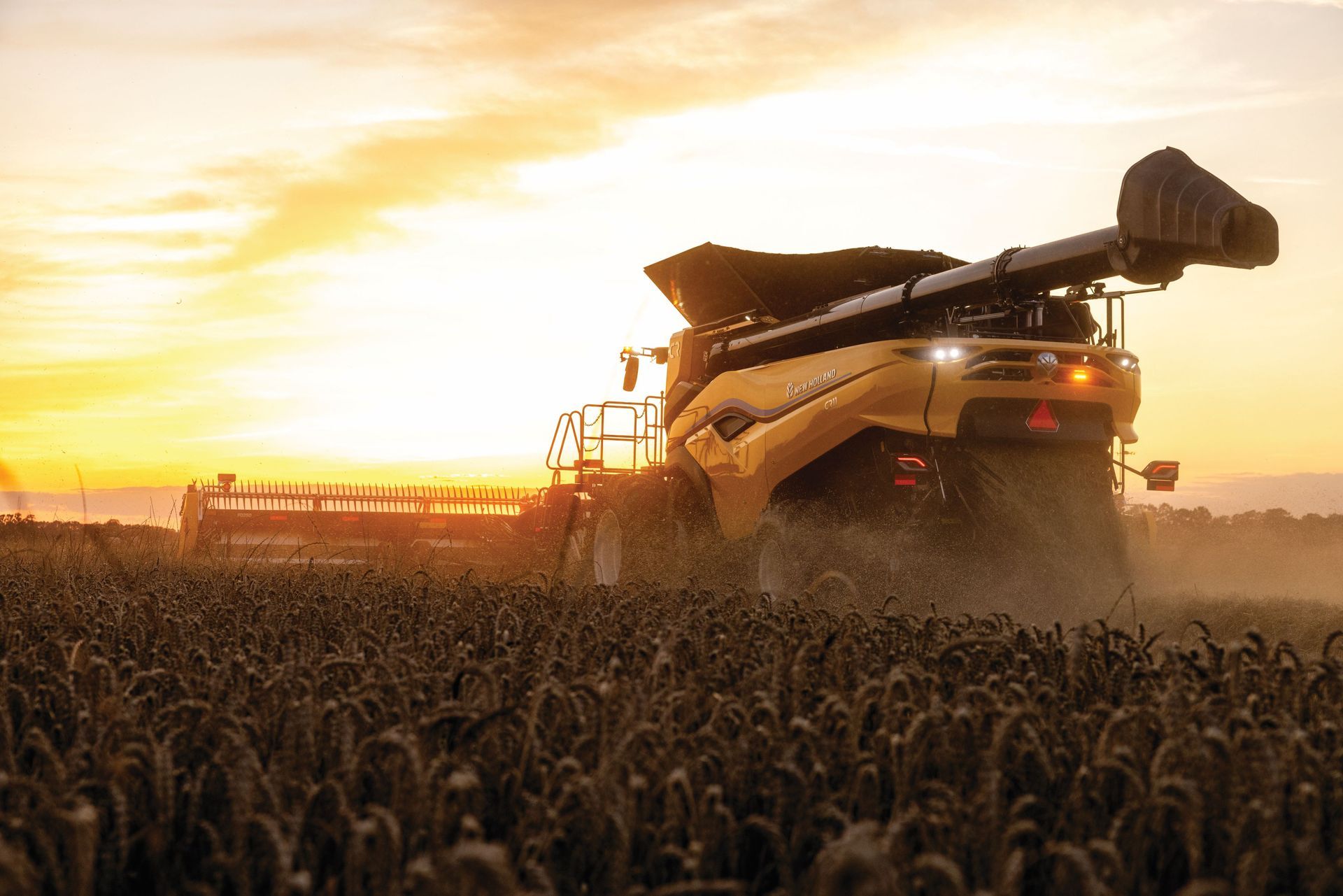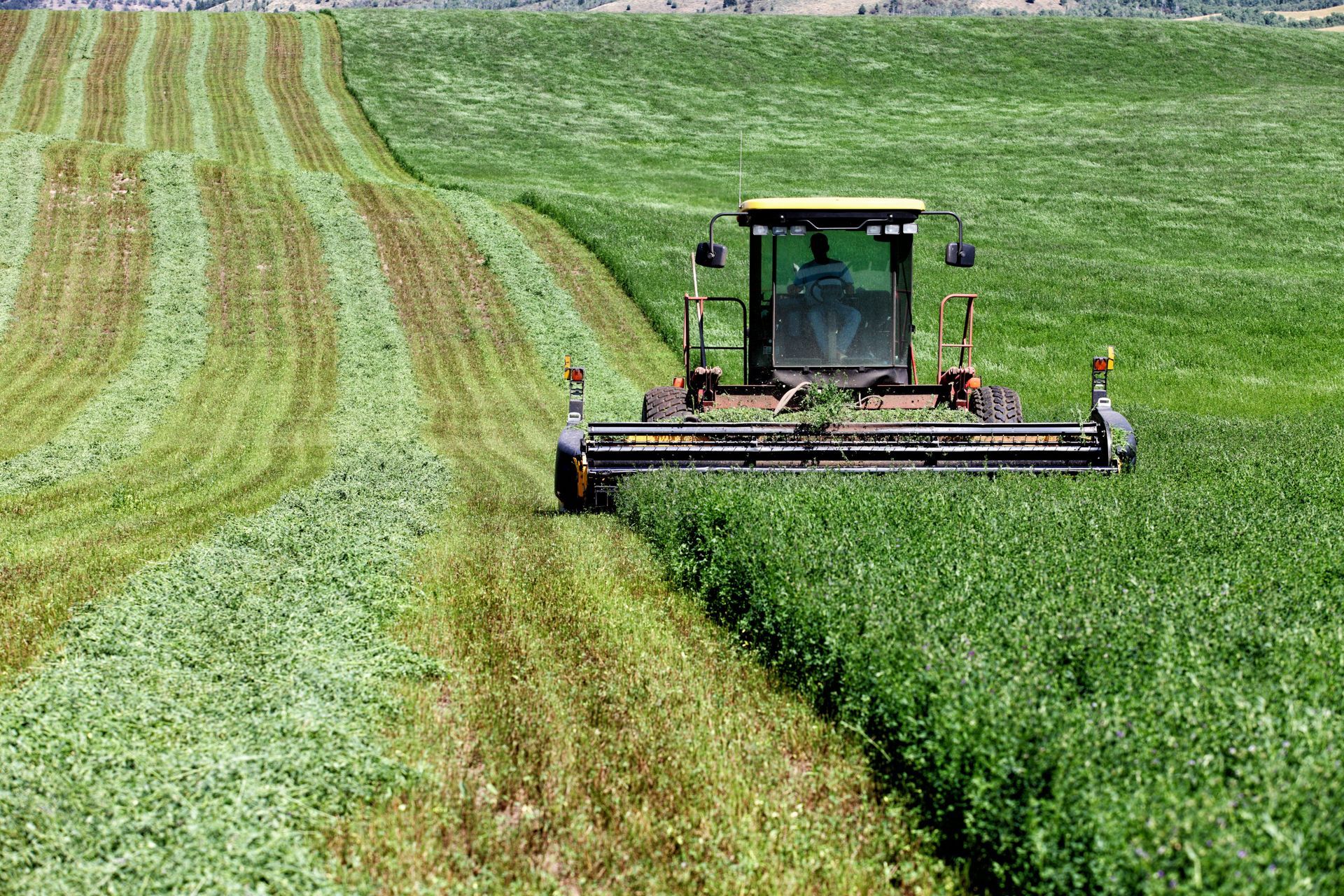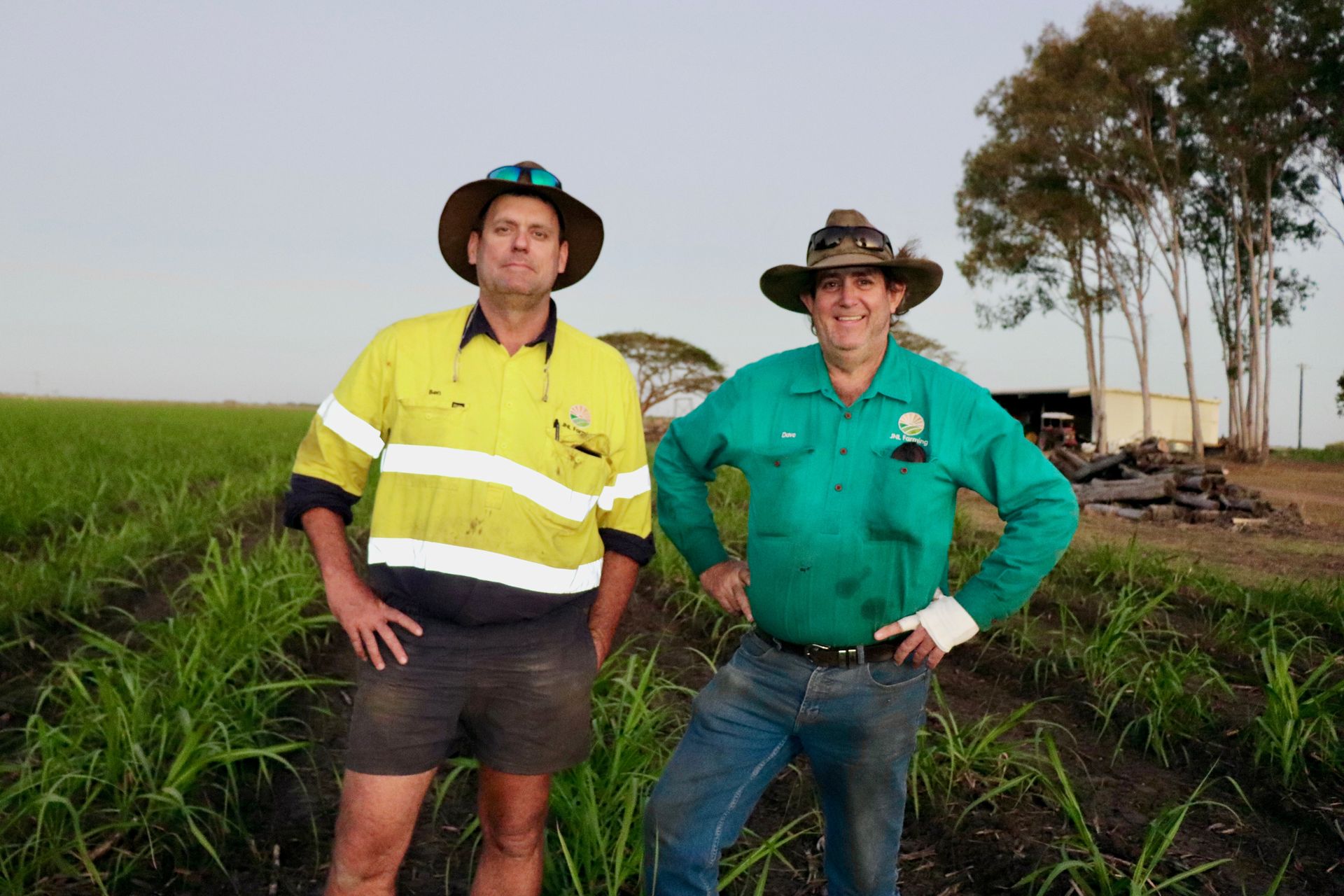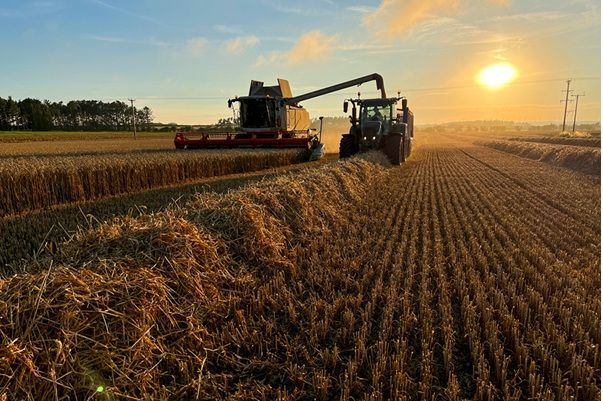1MG FlippingBooks
Are we at war with nature? The language of leadership at the tipping point
The closer we get to tipping points of runaway biodiversity collapse, soil degradation and climate change, the more we need to accept that we’re part of a complex ecological system beyond our control. Our path to ecological reconciliation will be paved not only by the way we farm, but in the stories we tell and the language we use, writes Lorraine Gordon.
Off the back of the toughest drought in Australian history, November 2019 saw my family farm simultaneously 'smashed' between two major fires in NSW – the Ebor fire at one end and the East Cattai fire at the other. This took out approximately 20 kilometres of boundary fence and $700,000 in infrastructure.
In a few hours, these catastrophic fires completely devastated our landscape. Come March 2020, our entire operation was shut down for much of the remaining year. Flood conditions caused a series of avalanches on the mountain to our farm, which resulted in road closures and cut us off from staff and contractors for nearly 6 weeks. Everyone was forced to drive three hours to get around this disaster and come to work.
Such double-barrelled crises are now familiar for many Australians, particularly farmers who so often bear the inordinate brunt of climate and economic instability.
As a community, we will continue to feel the worsening brunt of these extreme weather conditions as we face the reality of climate change.
Planetary boundaries is a concept involving Earth system processes that contain environmental boundaries. The framework is based on scientific evidence that human actions since the Industrial Revolution have become the main driver of global environmental change
(see Figure 1).
Planetary Boundaries are currently unravelling and causing us to rocket away from the stability of the Holocene; climate change is only one of these systems. Without significant change in the way the population operates, including how we conduct agriculture, human activities will continue to destabilise our planet.
Over 50 years ago, the term ‘Regenerative’ was developed by systems theorist Charles Krone in the US to describe a radically different paradigm of approaching human and systems development.
Leading Academic Agronomists agree that, Agriculture is in crisis. Soil health is collapsing. Biodiversity faces its sixth mass extinction. Crop yields are plateauing. Against this crisis narrative swells a clarion call for regenerative agriculture” (Giller, Hijbeek, Andersso, & Sumberg, 2021).
Agriculture occupies 38 per cent of the planet’s total landmass. It is therefore a significant influencer on our planetary systems. Firstly, agriculture has tipped biogeochemical flows through overuse of phosphorus and nitrogen. It has also risked biosphere integrity by decreasing genetic diversity within species.
Other impacts are felt around land-systems change, freshwater use and climate change. We need to invite resilience back into agriculture if we are to survive in an increasingly hostile and fragile environment.
Figure 1: The role of agriculture in overstepping planetary boundaries. (Campbell et al., 2017)

In 2018, I founded the Regenerative Agriculture Alliance (RAA) at Southern Cross University as a venture to enable a large-scale transition to regenerative agriculture in Australia. I recognised that Collaboration between Australia’s leading researchers, teachers and practitioners, was the key to advancing regenerative agriculture outcomes. In partnership with the Farming Together program, RAA is committed to translating its research findings into practical regenerative agricultural solutions, bringing all farmers in the country along on the journey together.
We also recognise the importance of educating the next generation of farmers in resilience disciplines to help them cope with a changing climate. Hence, we created the Bachelor of Science specialising in regenerative agriculture and the Graduate Certificate leading to a Masters in regenerative agriculture at Southern Cross University. Having adopted the necessary changes in the way agriculture is taught and understood in Australia, Southern Cross University is a pioneer in the regenerative agriculture landscape.
If I am going to continue to advocate, research and to educate, as a recognised leader in the field, it is important that “I walk the talk” on my own farm. As an early adopter of carbon farming, registered with the Emissions Reduction Fund, I am happy to make the mistakes, learn from them and use this experience to help others with the process. Carbon co-ops like the ones currently being developed in Northern NSW, are now my focus for creating change, impact and scale. In a nut-shell, the co-operative structure will ensure profits remain with farmers whilst they walk this often complex journey together.
At the heart of it, we need to decide whether we’re going to continue trying to dominate and control the ecosystem, or accept that we’re part of that system; integrated within the web of life. This decision starts with the way we use language, particularly how we frame our current crisis.
For example, metaphors used by a former fire Chief when speaking about the 2019 Australian bushfires were, in my opinion, unfortunate i.e. "The enemy is geared up ... it's like [the enemy's] suddenly got nuclear weapons." He then remarked that, "climate change was the enemy"! This was echoed by another former fire Chief who went further suggesting "national military-style training" to deal with the "locality of battles in a greater climate change war."
I applaud the efforts of our country’s brave firefighters and have personally worked beside them in the recent NSW bushfires. However, I never thought for one moment that we were at “war” with Nature. Indeed, as the Indigenous fire practitioner and author, Victor Steffensen says, "the only reason we are seeing all this degradation to landscape is not just because of climate change, but it's because of bad management." Interesting we are seeing the same sort of narrative unfold with COVID-19, using military language such as “at war” and “fight the virus” only to learn the hard way that we are going to need to live with it and adapt our lifestyles accordingly.
In a recent article by PhD Candidate Ethan Gordon at the UTS Institute for Sustainable Futures, “How Language shapes our Landscape Decision Making” he asks "what is the consequence of treating ecological systems, that are in distress because of human actions, as if they are a nuclear enemy? To fight and destroy the environment is to fight and destroy ourselves. Human beings are in no way separate from the natural world ... this approach has narrowed foresight; no longer can we see the potential for ecological reconciliation. Instead, we only see the 'enemy.'"
Genetic diversity is the total number of genetic characteristics in the genetic makeup of a species, it ranges widely from the number of species to differences within species and can be attributed to the span of survival for a species
Let's contrast these metaphors with those of our First Nations people. They speak instead of "fire knowledge holders" and "becoming part of country." Note the difference in metaphor use.According to Gordon, these differences in metaphor use reflect competing discourses. The former is born of colonialism "and hence carries heavy militaristic symbolism." He says, "this is not a reflection of the individuals who have spoken these words, so much as it is a reflection of a society still gripped with colonial power. This power dynamic is clear in the metaphors as they reinforce independence, specialisation and control. They align with common conceptual metaphors that shape western thinking on nature."
The Principles of Regenerative Agriculture are what underpin the practices and should guide your actions. They include:
- Think holistically
- Think ecologically and understand complex, adaptive systems
- Be comfortable in ambiguity
- Have the capacity for continuous, transformative learning
- Make place-based decisions, within bio-regions
- Understand that human cultures are co-evolving with their environments
- Acknowledge and involve diverse ways of knowing and being in landscapes
- Participate in cultural and ecological reconciliation
My personal approach to agriculture is to work with nature and do my best to understand the lessons she imparts. And to remember that we need her more than she needs us. I shall continue to earnestly watch this so called “battle” unfold. It is clear who will win, so we best get onside now with nature, embrace her in all her complexity, listen to and fully acknowledge and respect what she is telling us.
Regenerative Agriculture is defined as: "A system of farming principles and practices that increases biodiversity, enriches soils, improves watersheds, and enhances ecosystem services. Terra Genesis International
Get involved in regenerative agriculture
The Regenerative Agriculture Alliance publishes a monthly newsletter with the latest opportunities in regenerative agriculture and collaborative farming. Email raa@scu.edu.au to subscribe and get involved.
For more information:
The Regenerative Agriculture Alliance: www.scu.edu.au/regenerativeag/
Farming Together Program: www.farmingtogether.com.au
Ref: Giller, K. E., Hijbeek, R., Andersso, J. A., & Sumberg, J. (2021). Regenerative Agriculture: An agronomic perspective. Outlook on Agriculture, 50 13-25. doi:10.1177/0030727021998063
Lorraine is the Founder and Director of the National Regenerative Agriculture Alliance. As Director of Strategic Projects at Southern Cross University, Lorraine acts as a conduit between industry and research, delivering regenerative agriculture solutions nationally with a focus on mitigating the effects of climate change. She was the instigator and co-designer of the Bachelor of Science majoring in Regenerative Agriculture – the only degree of its kind in the world and now the largest agricultural degree in the country. She has assisted over 28,500 farmers, fishers and foresters around the country to progress collaborative projects including establishing Cooperatives which will benefit their various industries as Director of the Commonwealth Government’s Farming Together Program. Lorraine was awarded the 2018 Rural Community Leader of the Year for Australia for her work with farmers, the 2019 Australian Financial Review Award and the 2019 BHERT Higher Education Engagement Award. She was also a finalist in the 2020 Australian of the Year Award. Lorraine is also a carbon farmer and beef cattle trader at Ebor in the New England Tablelands.


















